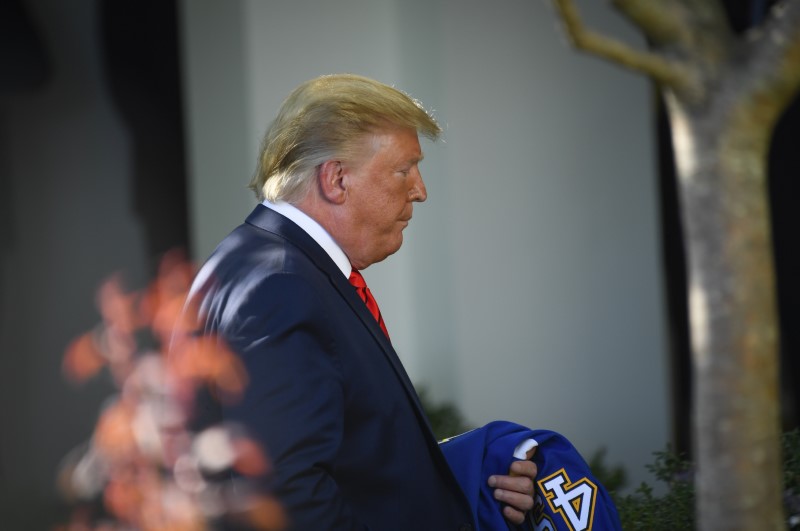By Steve Holland and Alexandra Alper
WASHINGTON (Reuters) - U.S. President Donald Trump is expected to raise the possibility of U.S. retaliation against an Italian tax on digital companies when he meets with President Sergio Mattarella on Wednesday, a senior administration official said.
Speaking with reporters on Tuesday ahead of the White House visit, the official said Trump would likely express the desire that the tax disagreement be resolved at the Organisation for Economic Cooperation (OECD), but noted that the United States was prepared to counter any such levy.
Trump "believes this is an unfair discrimination on U.S. companies since they are the primary companies that would be affected by such a tax," the official said. "If such targeting of U.S. companies is done, he would have no choice but to retaliate to protect U.S. businesses."
The comments came after Reuters reported on Monday that Italy is readying a new tax on digital companies in its 2020 budget to kick in in January, as it seeks alternative revenue that will allow it to scrap a scheduled increase in sales tax.
If approved in current form, the levy will oblige multinational web-based giants to pay a 3% levy on internet transactions, sources said.
European Union members have long complained about the way Facebook Inc (NASDAQ:FB), Alphabet (NASDAQ:GOOGL) Inc's Google and large Web companies collect huge profits in their countries but pay taxes of a few million euros per year at most.
In August, France and the United States reached a deal to end a standoff over a French tax on big internet companies, with France repaying companies the difference between the French tax and a planned mechanism being drawn up by the OECD.
U.S. officials had complained the levy unfairly targeted U.S. companies such as Facebook, Google and Amazon.com Inc (NASDAQ:AMZN) . They are currently able to book profit in low-tax countries such as Ireland and Luxembourg, no matter where the revenue originates.

Italy's plan is broadly in line with proposals from the OECD, which last week urged governments to redraw rules for taxing global giants.